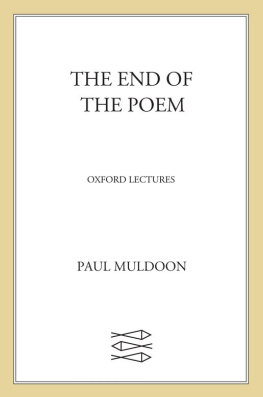Multilateral Diplomacy
and the United Nations Today
First published 2005 by Westview Press
Published 2018 by Routledge
711 Third Avenue, New York, NY 10017, USA
2 Park Square, Milton Park, Abingdon, Oxon OX14 4RN
Routledge is an imprint of the Taylor & Francis Group, an informa business
Copyright 2005 Taylor & Francis
All rights reserved. No part of this book may be reprinted or reproduced or utilised in any form or by any electronic, mechanical, or other means, now known or hereafter invented, including photocopying and recording, or in any information storage or retrieval system, without permission in writing from the publishers.
Notice:
Product or corporate names may be trademarks or registered trademarks, and are used only for identification and explanation without intent to infringe.
A Cataloging-in-Publication data record for this book is available from the Library of Congress.
ISBN 13: 978-0-8133-4310-5 (pbk)
Much has changed in the world of multilateral diplomacy and the United Nations in the six years since this book was first published. Unfortunately, too few of the changes have been positive. The challenges of globalization have grown more pronounced and complex. The demands on the United Nations continue to rise while the financial and human resources available to the organization to meet these demands continue to decline. The crisis of multilateralism that emerged in the wake of the Cold War has worsened, especially since the terrorist attacks of September 11, 2001, and the launch of the U.S.-led war on terror. And yet the United Nations soldiers on, adapting and adjusting to the difficult environment of the post-9/11 world.
When we started working on this new edition two years ago, it was quite clear that the challenges confronting multilateral diplomacy and the United Nations at the start of the twenty-first century were not very different from those at the end of the twentieth century. In other words, what we had covered in the first edition was still salient. At the same time, we recognized that the diplomatic dynamics at the United Nations have changed more than a simple update of the text could capture. Hence, we not only asked the contributors to the first edition to revise their essays but also added new essays to the mix, bringing new perspectives and insights to the subject. Although this book was originally conceived to expand the resources available to students and faculty in the Model UN program, we are confident that this new edition will also be useful for courses on international relations, international organizations, and contemporary foreign policy, as well as for diplomatic training programs, and to practitioners currently in the profession.
This new edition would not have been possible without the generous participation of the contributors. It has been a privilege to work with them on this project. We would also like to express our gratitude to the many colleagues and friends who have supported this project and our individual efforts over the last six years. We are also grateful to Ecoforum Ltd/Strategic Advisory Board of Hungarian Development Bank for permission to reprint from their journal, Quarterly Hungarian Economic Review, Jacques Fomerands article that appears in . Finally, we are particularly indebted to Steve Catalano and the rest of the Westview editorial team for their guidance, assistance, and, most of all, confidence in this enterprise.
James P. Muldoon, Jr
JoAnn Fagot Aviel
Richard Reitano
Earl (Tim) Sullivan
July 2004
James P. Muldoon Jr.
Whether the terrorist attacks on the United States were a massive earthquake or a passing tremor, September 11 has changed much in world politics. It is not just the perception of the world that has changed: The structure of relations between and among nations has been affected, perhaps profoundly, for years to come. The post-September 11 world opens a new chapter in international politics. Pariahs have become partners and marginalized institutions have become major players.
William H. Luers, President of the United Nations Association of the USA
The fortunes of multilateral diplomacy and the United Nations have waxed and waned since the launch of the US-led war on terrorthe first twenty-first-century war according to US President George W. Bush. But there is nothing new about this situation. The UN has long been the whipping boy of its most powerful member. So, it was not unexpected (at least among students of diplomacy and international organizations) when the world body was beseeched by the worlds only hyperpower for support and assistance in fighting the worlds evildoers and rogues and was then derided as irrelevant and inept for refusing to blindly rubber-stamp Washingtons grand strategy for winning the war on terror. However, the viciousness of the criticism and the sustained effort to discredit the United Nations by the neoconservative faction of the Bush administration in the run-up to the war on Iraq were both extraordinary and effective.
The fate of the United Nations has been a serious concern of many scholars and policymakers for some time, in particular its role in a post-Cold War international order dominated by the worlds sole superpower, the United States. The end of the Cold War engendered hopes that the United Nations might finally be able to meet the tasks and aims set out in its Charter, above all peacekeeping and the protection of human rights.... [However,] at the beginning of the new century a unipolar world order seems to have arisen from the ruins of the bipolar world order, a power-based hierarchical order of the worlds states with the US as the only world power capable of global action, and the US, under the Clinton administration, resolutely pursuing] a policy of hegemony (Messner and Nuscheler 2002, 125 and 134). Instead of the United Nations and reinvigorated multilateralism being the cornerstone of the new world order, a Pax Americana has gradually taken hold, which depends on the durability of American preponderance and preeminence (militarily, economically, and culturally) in the world.
The current talk of American empire and imperialism reflects the growing disenchantment with the way the United States has managed the post-Cold War international order. Charles Kupchan points out:
America today arguably has greater ability to shape the future of world politics than any other power in history. The military, economic, technological, and cultural dominance of the United States is unprecedented.... Despite the opportunities afforded by its dominance and by the end of the cold war, America is squandering the moment.... Washingtons swaggering brand of global leadership and its dismissive attitude toward international institutions have succeeded in alienating much of the world and straining to the breaking point many of Americas key partnerships. Rather than rallying behind the United States, countries around the world are distancing themselves from Washington and locking arms to resist a wayward America....
The failure of the United States to manage more successfully the post-cold war international order is a direct by-product of Washingtons misperception of the worlds geopolitical landscape. Backed up by repeated scholarly pronouncements about the longevity of unipolarity, successive administrations have operated under the assumption that U.S. primacy is here to stay.... Such confidence in the durability of U.S. preponderance bred the complacency of the 1990s. Washington believed that order would devolve naturally from hierarchy; there was no pressing need for institutional innovation. The blustery policies of the Bush administration have similarly been based on the presumption that a combination of preeminence and uncompromising leadership will induce the rest of the world to get in line....

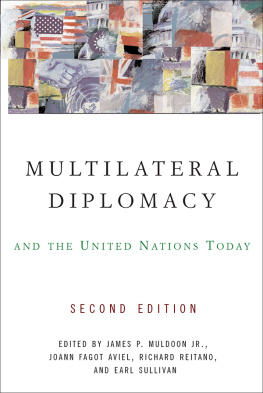
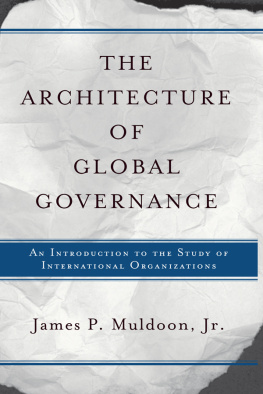
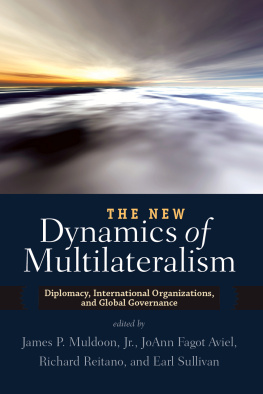
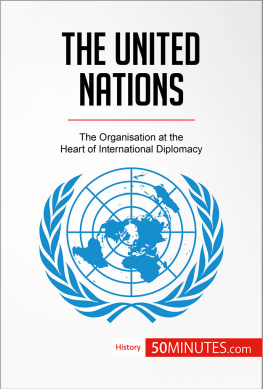
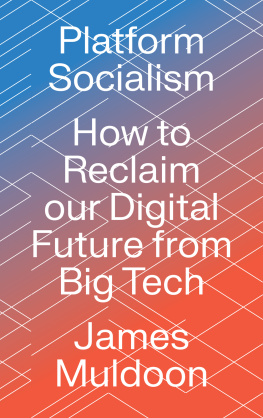
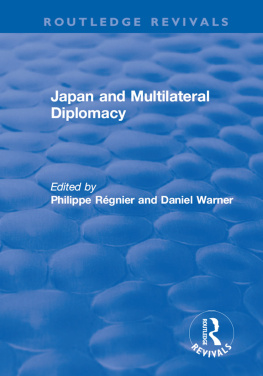
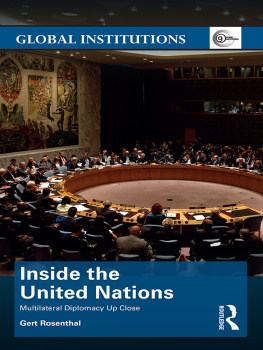
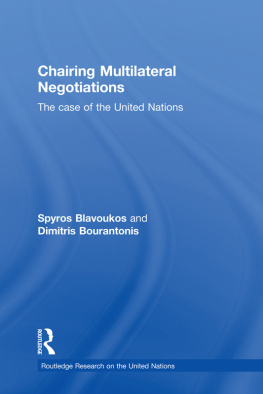
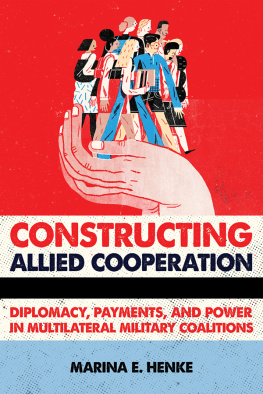
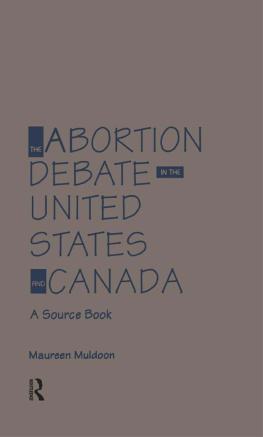
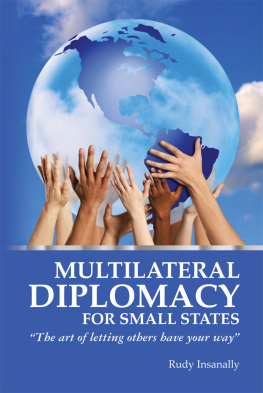
![Paul Muldoon [Paul Muldoon] - Poems 1968-1998](/uploads/posts/book/83661/thumbs/paul-muldoon-paul-muldoon-poems-1968-1998.jpg)
